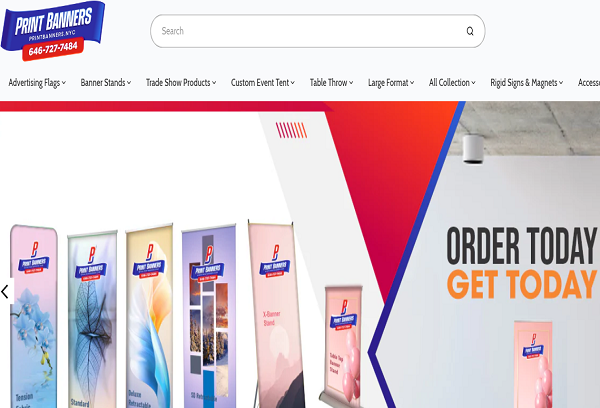Rand Fishkin on the Shrinking SEO Opportunity and Key Insights
- December 5, 2024
- SEO
Rand Fishkin recently shared fascinating new research on how people use Google today. For a deeper dive into this, check out my article: Surprising Data: 15% of Google Searches Are Driven by Just 148 Terms.
I reached out to Fishkin to discuss the implications of his findings and the insights he shared at BrightonSEO San Diego last month. Below are the key takeaways from my recent Q&A with Fishkin, with quotes lightly edited for clarity and brevity.
Most Surprising Discovery
Fishkin’s most surprising revelation from the data was the vast size of the “fat head” of search demand:
- “The size of the ‘fat head’ was staggering. I never expected just 148 keywords to account for nearly 15% of all search volume. While I wish I could compare this to past years (and had conducted this research earlier), it’s clear that Google’s search demand is becoming more concentrated, much like the broader economy.”
The Need for Creativity
In his BrightonSEO keynote, Fishkin discussed how marketing has become “zero-sum”—meaning that in order to capture people’s attention, you’ll need to take it from someone else. As the digital landscape nears its peak, the growth of online time has stagnated, especially as almost every person in the U.S. now has Internet access. Here’s his take on the situation:
- “It suggests that creativity will become a key factor in success. Many search marketers have been focused on ranking and traffic from the same keywords for years. With peak internet usage and the zero-sum nature of search traffic, I recommend focusing on creative content, innovative placements, and exploring channels your competitors haven’t tried yet (cough podcasts, email newsletters, direct ads, YouTube, organic social cough).”
Influence Over Clicks
SEO efforts have traditionally centered around generating clicks. However, Fishkin argues that search today is about much more than just clicks, especially considering that 60% of Google searches end without a click:
- “Zero-click organic search offers significant branding opportunities. If your boss or client is pressuring you to drive traffic, show them the data on how much influence you can exert through Google’s results, and how much companies already spend to achieve this kind of visibility.”
Informational Intent and AI
Historically, brands have produced informational content to capture users at the beginning of their buying journey, and Fishkin’s research shows that 52.65% of Google searches are informational. However, with the rise of AI-driven responses, many of these informational queries are now being answered directly by Google. So, should marketers continue focusing on ranking for such queries, or is this strategy becoming obsolete? Fishkin advises:
- “Many marketers are likely wasting time and resources on traffic that might not return. But, as always, it depends on your results. Don’t rely solely on broad studies of millions of searches—check what works for your specific case.”
Peak SEO
Andrew Holland recently wrote about a potential SEO career crisis, pointing to a decline in job listings earlier this year (although this trend seems to have reversed in recent weeks). Does this signal the end of traditional SEO? Fishkin has thoughts on
- “I agree with your assessment. The SEO ‘opportunity pie’ is shrinking, and I believe we’ve reached peak employment in the sector. Expanding your skillset to other areas of digital marketing, especially those on the rise (like content distribution and creative brand building via third-party channels), is a smart move. There will always be demand for talented search marketers, but if current trends hold, the need for those focused on traditional SEO tasks will likely decrease, perhaps even significantly.”
Organic Traffic vs. Revenue
Wil Reynolds recently discussed how his organic traffic declined, yet his revenue remained steady. Does this suggest that the value of organic traffic has been overstated? Fishkin’s perspective:
- “There’s likely been a mix-up between organic traffic and revenue since Google removed keyword data in 2013. My guess is that branded search traffic is driving more value than many marketers realize, while unbranded traffic is providing less. Additionally, if you see branded search as solely the domain of search marketing, rather than a result of your broader efforts (like brand, PR, content, etc.), you may be misallocating your budget.”
Social Search
The debate on whether platforms like TikTok can be considered search engines has been ongoing, especially since the concept of search has long been dominated by Google. Here’s Fishkin’s view on the matter:
- “While I agree that a search on TikTok differs from one on Google, the lines are blurred when you consider other platforms like Pinterest or Reddit. It’s clear that to future-proof your career and reduce your brand’s reliance on a single channel, you must identify where your customers are being influenced and find ways to engage in those spaces. SEO shouldn’t be your only tool, and Google rankings shouldn’t be your sole focus. The world is broader, and your strategies should be adaptable.”
Building on Rented Land
Fishkin has spent years emphasizing the importance of focusing on your website and email list. However, he now believes this may have been the wrong approach. Here’s why:
- “When I say ‘build on rented land,’ I mean marketers should stop viewing every platform as a source of traffic. If you pursue that strategy, you’re fighting against the platform’s own agenda. Instead, consider digital channels—especially emerging ones like TikTok, ChatGPT, and Perplexity—as opportunities to capture attention, engage your audience, and create memorable interactions that make potential customers think of your brand when a need arises. This can also boost your SEO, as increased awareness leads to more branded Google searches.”
SEO in 2025
Curious about how Fishkin sees SEO evolving in 2025, especially given his recent research, I asked for his thoughts:
- “Interestingly, I don’t think we’ll be changing our approach to SEO at either of my companies. With SparkToro, our focus has always been on growing product awareness and building a shareable brand, rather than competing for unbranded keywords that don’t align with our business. Similarly, at Snackbar Studio, we focus on getting featured in influential publications, like Kotaku’s ‘Best Games’ lists, rather than trying to rank for specific game-related terms. For us, that’s a far more effective strategy than trying to compete in the crowded SEO space.”
Finally, Fishkin shared one SEO tip for 2025 (with the caveat that he hasn’t been directly involved in SEO for seven years):
- “Leverage third-party publications, especially those with strong followings. By getting featured on authoritative sites that already rank well, you not only benefit from their existing authority but also enhance your discoverability through large language models (LLMs), which often use such sources for training data.”
Earn SEO: Your Partner in SEO Success
As we move into 2024, the digital marketing landscape is rapidly evolving, and keeping up with these changes is crucial. Whether it’s adapting to the shrinking SEO opportunity pie or exploring new creative avenues, businesses need a trusted partner to navigate the complexities of SEO. At Earn SEO, recognized as the Best SEO Company in 2024, we focus on innovative, results-driven strategies tailored to each client’s unique needs. Our team specializes in driving traffic, increasing visibility, and boosting revenue through cutting-edge SEO techniques. If you’re ready to enhance your online presence, Earn SEO is the partner you can count on.
Earn SEO was established in 2011 by Devendra Mishra, a highly educated professional with varied training and experience. Mr. Mishra is responsible for business development, attracting new Earn SEO partners, and interacting with clients, the media and press, and acting as Brand Ambassador.
Devendra Mishra
Founder





































